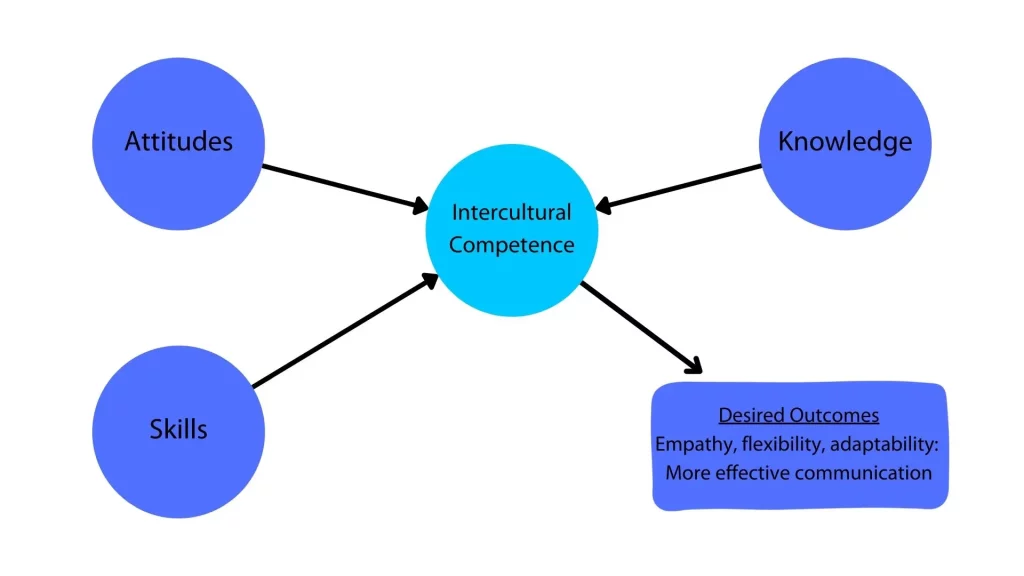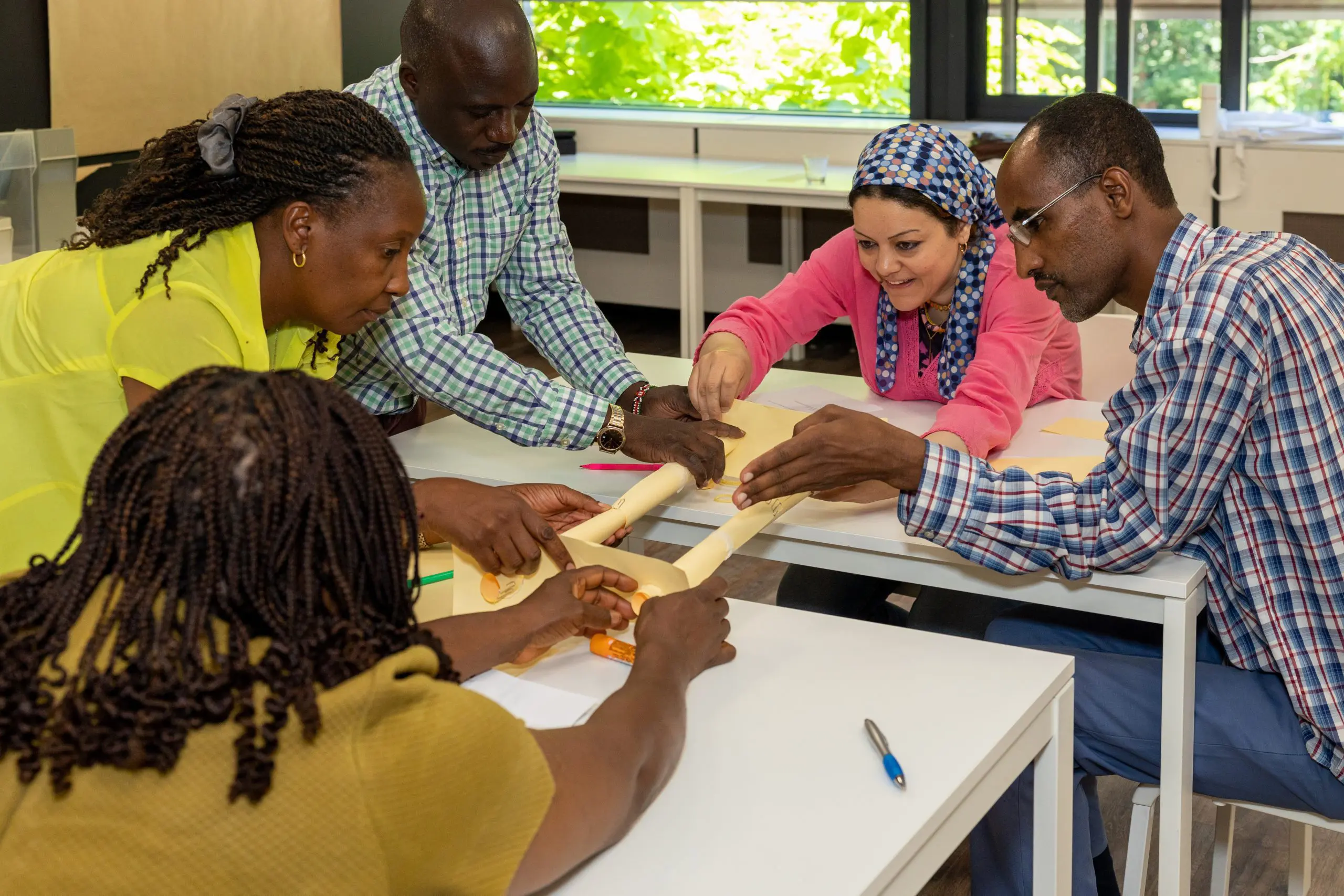Understanding Cultural Differences
Cultural differences impact all aspects of human interactions, including training sessions, meetings, feedback processes, negotiations, and leadership styles. Specifically, they influence communication, decision-making, conflict resolution, time management, and team dynamics, such as task division and the balance between teamwork and individual work. Recognizing the value of cultural diversity and maintaining an open-minded approach, are essential for effectively navigating these differences.
Reflect on your current intercultural competences
If you are working with people from different cultural backgrounds, it is crucial to regularly assess your intercultural competence by asking yourselves reflective questions. This process helps you evaluate your current abilities and set clear goals for improving the skills you need to develop further. Here are some example questions:
- How do you ensure that your communication respects and considers the diverse cultural values and norms of your team members or trainees?
- How do you approach learning about new cultures, especially when it’s relevant to your professional responsibilities?
- How do you manage to maintain your own cultural identity while adapting to new cultural environments in a professional context?
What is the ‘Intercultural Communication Competence’ model and how can you make it work?
The ‘Intercultural Communication Competence’ model is your pathway to effectively engaging with diverse cultures through a balanced blend of attitudes, knowledge, and skills. Here is how you can enhance each component to become more adept in intercultural settings:
- Cultivate the right Attitudes: Be respectful, open, and curious! Approach interactions with respect for others’ backgrounds and perspectives and exhibit genuine curiosity about different cultures. Try to truly hear and value what others are saying, as active listening can deepen your connections with people from all walks of life. Challenge yourself to step outside your comfort zone and engage with unfamiliar cultures, to enrich your experiences.
- Expand your Knowledge: Learn about the beliefs, values, and norms of other cultures and familiarize yourself with basic language phrases and important social behaviors. Recognize and address your own cultural biases to enhance understanding and communication.
- Develop your Skills: Pay close attention to the nuances in people’s behavior and speech, as these can reveal key cultural priorities. Use these observations to analyze, evaluate, and interpret cultural interactions, helping you grasp the context behind actions and words. Remember to adapt your communication style as needed! Finally, regular self-reflection on how your cultural background influences your perceptions is also essential for ongoing improvement in your interactions.

Intercultural-Competence.jpg
If you have the right attitudes, knowledge, and skills, you can develop empathy, flexibility, and adaptability, enabling you to better meet the expectations of others and enhance communication. Change begins within each person and gradually extends to interactions, ultimately achieving the desired outcomes.
Want to develop your soft skills and build partnerships that bridge cultural boundaries? Visit our courses page!


